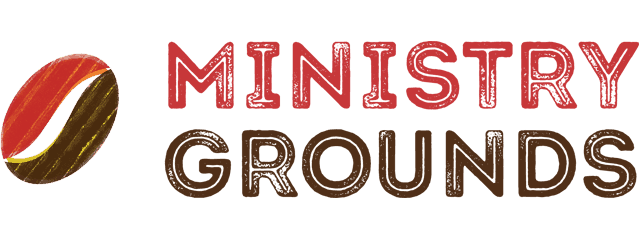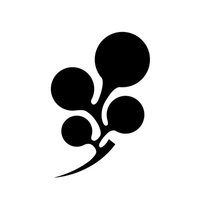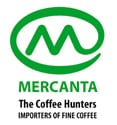Certifications
Many coffee lovers are familiar with the various coffee certification programs around:
- Fairtrade
- Rainforest Alliance
- Utz Kapeh
- etc
This is a very brief run down on the more common ones you will see referred to on this site:
Fairtrade
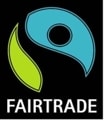
From Wikipedia: “Fair trade is an organised social movement and market-based approach that aims to help producers in developing countries and promote sustainability. The movement advocates the payment of a “fair price” as well as social and environmental standards in areas related to the production of a wide variety of goods. It focuses in particular on exports from developing countries to developed countries, most notably handicrafts, coffee, cocoa, sugar, tea, bananas, honey, cotton, wine, fresh fruit, chocolate and flowers.”
In the context of a product like coffee, Wikipedia adds: “Fairtrade certification (Fairtrade, known as Fair Trade Certified in the United States and Canada) is a product certification system designed to allow people to identify products that meet agreed environmental, labour and developmental standards. Overseen by a standard-setting body, FLO International, and a certification body, FLO-CERT,”
I’ve blogged extensively about my concerns with the Fairtrade system in the context of specialty coffee, and in particular with its propensity to fail to encourage better quality produce, so I won’t repeat that argument here. But Ministry Grounds will still support Fairtrade coffee where the product is deserving of such support, and so you will see Fairtrade coffee appearing here from time to time.
Rainforest Alliance

Again from Wikipedia: “The Rainforest Alliance is a non-governmental organisation (NGO) working to conserve biodiversity and ensure sustainable livelihoods by transforming land-use practices, business practices and consumer behaviour. Based in New York City, with offices throughout the United States and worldwide, the Rainforest Alliance works with people whose livelihoods depend on the land, helping them transform the way they grow food, harvest wood and host travellers. From large multinational corporations to small, community-based cooperatives, they involve businesses and consumers worldwide in their efforts to bring responsibly produced goods and services to a global marketplace where the demand for sustainability is growing steadily. The conservation NGO was founded in 1987 by Daniel Katz.”
While primarily an environmental organisation, RFA’s work closely connects to broader social issues. eg from their web site: “Rainforest Alliance Certified coffee is grown on farms where forests are protected, rivers, soils and wildlife conserved; workers are treated with respect, paid decent wages, properly equipped and given access to education and medical care. The Rainforest Alliance seal ensures that experienced inspectors have verified that the farms meet demanding social and environmental standards, and are on a path toward true sustainability.”
On top of the fine work RFA does (and the way it seeks accountability by publishing financial and other data), it’s a system which promotes the growing of a quality crop, so the vast majority of RFA coffee I see and taste is well above average in quality. See here for an example.
Utz Certified
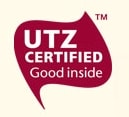
(used be known as ‘Utz Kapeh’)
Funny name, but one of the largest certification bodies around. From their web site: “Its vision is to achieve sustainable agricultural supply chains where farmers are professionals implementing good practices which lead to better businesses“
They have a big focus on traceability and the accountability that can provide.
Many coffees that have other certification are also Utz certified. eg: Many Rainforest Alliance coffees are also Utz certified. Not sure if that is coincidence or a product of similar standards of the various programs,
Directly Traded
Not direct trade in the sense of the roaster buying straight from the grower, but this is a big step closer to that for small roasters like me. This is not a certification program as such, but rather a whole philosophy of coffee purchasing and marketing. Sometimes the initiative comes from the growers themselves (eg Ethica Coffee in the PNG), but mostly it’s driven by passionate people looking for excellent coffee and being prepared to pay well above market rates for it.
So we have companies like Mercanta who say this on their website:
“The existence of futures markets for coffee has ‘commoditised’ the product. There is a false assumption that coffee is ‘generic’, as if every bag from a single origin/country somehow tastes the same.
Even the best farms in the world produce no more than 35% genuine Specialty Grade coffee in any season. The assumption that quality remains constant dependent purely upon origin or description is a policy reserved for commercial commodity grade buyers.
Mercanta the Coffee Hunters is not a charity, but our philosophy is simple…
- Quality. Why pay a ‘fair’ price (or any price for that matter) if you don’t know what you’re buying.
- Expertise. Our custom-built and designed coffee laboratory is state-of-the-art. A visiting customer described it as world-class. Mercanta employs some of the world’s best coffee cuppers (tasters). Every lot we buy – every single delivery – is comprehensively tasted
- Traceability. Once we’ve found an excellent lot, do we know who grows it? For more than 85% of what we buy, the answer is YES, right down to the individual farm, cooperative or growers’ association. Our objective is 100% traceability.
- Sustainability, Ethics, Environment. Our origin partners are encouraged to adopt
strict social and environmental policies. This is also good business…
- Pay workers more = find better workers
- Encourage wildlife and birds on the farm = less reliance on insecticides
- Use organic composting = less need for chemical fertiliser
- Provide for your workers = retain skilled work force
In many ways, it’s a compelling argument for consumers of fine coffee who are prepared to pay a fair price for it. While it is clearly not a solution for the inequities and injustices of a huge commodity market, direct trade is destined to play a big part in Western nations doing their bit to improve the conditions of coffee growers and workers.
We are delighted to work closely with Mercanta’s partners in Australia, Melbourne Coffee Merchants
Others
There are numerous other bodies that are engaged in promoting quality coffee grown in a sustainable and ethical way. Some are country-specific eg The Brazil Specialty Coffee Association.
Some are more focussed on business promotion than the ethical practices of growers, but most have at least some commitment to sustainability/ethical farming practices.
That’s a brief summary of some of the common certifying and similar bodies in the coffee world.
Coffees available here have certification or connections with all of the above programs/philosphies. On each product page is a simple table to tell you which programs that particular coffee is part of.
In the end they are all flawed in some way, but they are also all involved in ‘doing good’ in the coffee world, and hopefully all contributing to a better deal for the grower, workers and coffee consumers of the world.
